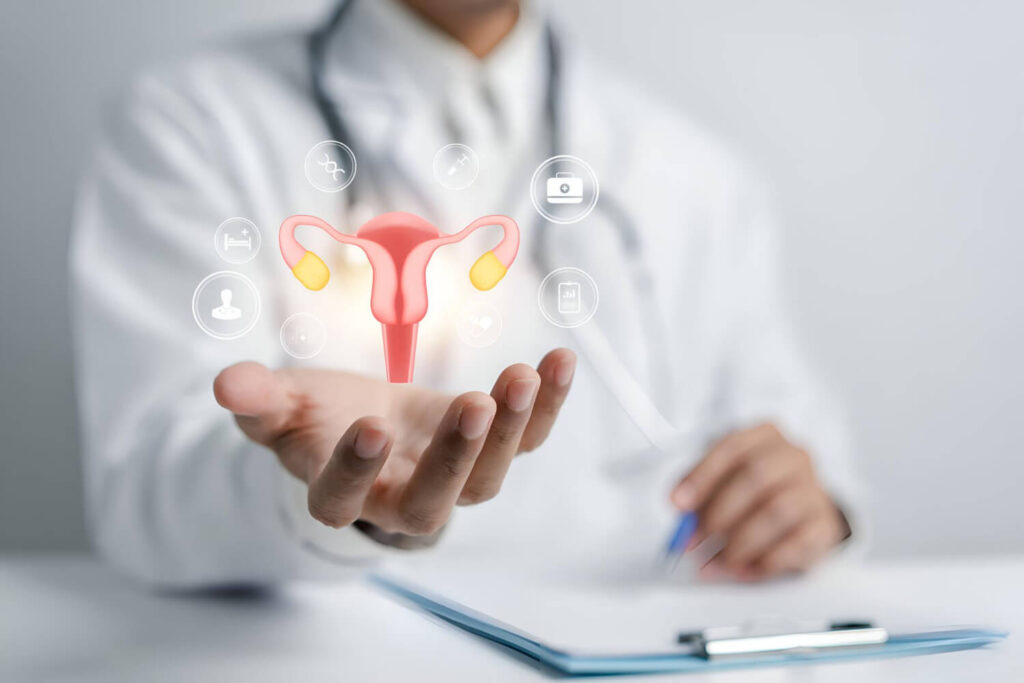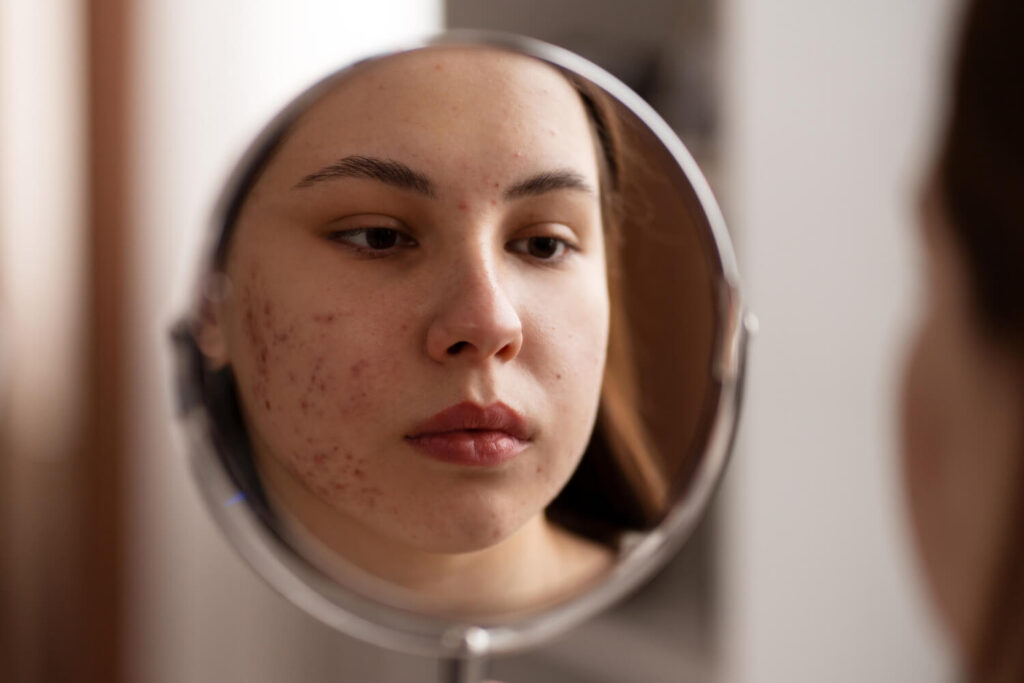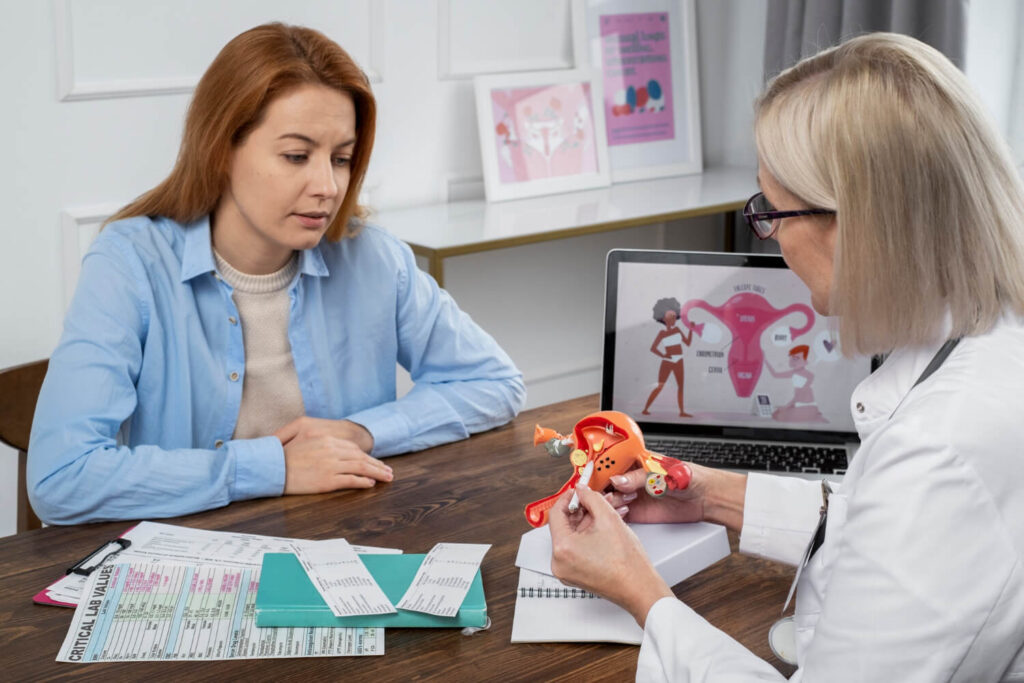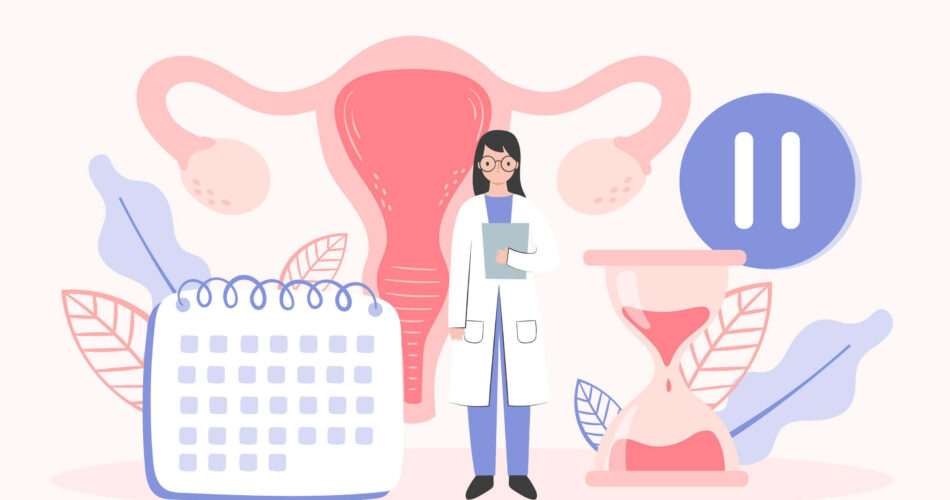With today’s lifestyle choices, many women were diagnosed with PCOS or Polycystic ovary syndrome. This syndrome involves several PCOS symptoms like irregular menstrual periods, growth of body hair, and many more. These warning signs are vital to recognize early on as they may indicate other health problems in reproductive health and overall health.
That’s why if you are experiencing sudden changes like these, it’s best to monitor yourself. Fortunately, this blog can help you to be proactive about your health. Discover the crucial PCOS symptoms and learn how to manage them properly through undergoing a health treatment. Let’s begin!
What is PCOS?

As mentioned, PCOS stands for polycystic ovary syndrome, a condition that involves hormonal changes that affect the ovaries. Women with PCOS typically have enlarged ovaries with tiny cysts on the outer edges. The exact cause of PCOS is still unknown, but it is believed to have both genetic and environmental factors.
Furthermore, PCOS is a complex hormonal disorder that not only affects the ovaries but also has systemic effects on the body. Patients with the condition often experience PCOS symptoms like irregular periods, infertility, increased body weight, and high levels of androgens or male hormones such as testosterone. These hormonal imbalances can lead to a variety of symptoms, including acne, hirsutism (excessive body hair growth), and male-pattern baldness.
The Prevalence of PCOS
PCOS affects approximately 10% of women of reproductive age, making it one of the most common endocrine disorders among women. It can occur at any age after puberty, but it is most commonly diagnosed in women in their 20s and 30s.
Despite its prevalence, PCOS remains underdiagnosed and misunderstood by many healthcare providers. The PCOS symptoms can vary widely among individuals, making it challenging to diagnose. Additionally, the lack of a definitive diagnostic test for PCOS means that healthcare providers often rely on a combination of PCOS symptoms, physical exams, and blood tests to make a diagnosis. This can lead to delays in diagnosis and treatment for many women with PCOS.
Identifying PCOS Symptoms
Aside from the noticeable changes in the menstrual cycle, there are other other health symptoms that women must also recognize. For easier understanding, we’ve divided the PCOS symptoms into two aspects. Let’s discuss them below!
Physical Signs of PCOS

Women with PCOS may experience a variety of physical symptoms, including irregular menstrual cycles, excessive hair growth on the face and body (hirsutism), acne, and weight gain. Infertility is also a common symptom of PCOS, as hormonal imbalances can interfere with ovulation and egg development. That’s because the body produces extra male hormones, which results in the mentioned physical changes.
In addition to these physical symptoms, women with PCOS are often at an increased risk of developing other health conditions, such as type 2 diabetes, high blood pressure, and heart disease. Meanwhile, women with the condition can still get pregnant but can also be at risk of pregnancy complications like gestational diabetes.
Emotional and Psychological Symptoms of PCOS

On the other hand, patients with PCOS can also experience emotional and psychological symptoms. Many women with PCOS experience symptoms of anxiety and depression, as well as low self-esteem and body image issues. The hormonal imbalances and physical symptoms associated with the condition can take a toll on a woman’s mental health.
Furthermore, the emotional and psychological symptoms of PCOS can often be overlooked or downplayed, leading to additional challenges for women dealing with this condition. Healthcare providers must address not only the physical symptoms of PCOS but also the emotional well-being of patients to manage the condition better.
Take note that PCOS affects each woman differently, and not all women will experience the same combination or severity of symptoms. Some women may only have mild symptoms, while others may struggle with more severe manifestations of the condition.
When to Visit an OBGYN Near Me for PCOS

Living life with PCOS can be challenging for most patients as the changes in physical and emotional aspects can alter their health immediately. For some people, these changes can affect their mental well-being, while others can experience other health conditions. With the possible complications of PCOS, patients need to be more proactive about their health.
That’s why if you suspect that you may have PCOS or are experiencing PCOS symptoms, it is essential to consult a healthcare provider. Don’t worry as the doctor will ensure the patients can receive a proper assessment to come up with a diagnosis and treatment.
Learn more about how visiting an OB-GYN can help with your PCOS symptoms and other complications.
Watch the SeriousTalks about women’s health below!
Diagnostic Procedures for PCOS
Medical History and Physical Examination
When diagnosing PCOS, healthcare providers will typically begin by taking a detailed medical history and conducting a physical examination. They will ask about menstrual cycles, symptoms, and any family history of PCOS. During the physical examination, they may look for signs of excess hair growth, acne, and enlarged ovaries.
Furthermore, the medical history may delve into the patient’s lifestyle habits, such as diet, exercise routine, and stress levels. These factors are crucial indicators of why people develop PCOS. That’s why understanding the patient’s daily habits can provide valuable insights into potential triggers or exacerbating factors for their condition.
Laboratory Tests and Imaging
In addition to the medical history and physical examination, healthcare providers may order laboratory tests to check hormone levels, such as follicle-stimulating hormone (FSH), luteinizing hormone (LH), testosterone, and insulin. These tests help in identifying hormonal imbalances that are characteristic of PCOS and can aid in confirming the diagnosis.
Moreover, imaging studies, such as transvaginal ultrasound and transrectal ultrasound, may also be performed to check the lining of your uterus and visualize the ovaries for the presence of cysts. Ultrasounds can provide detailed images of the reproductive organs, allowing healthcare providers to assess the size and appearance of the ovaries, as well as detect any abnormalities such as cysts or other structural issues that may be contributing to the patient’s symptoms.
Treatment Options for PCOS
Lifestyle Changes and Home Remedies
For many women with PCOS, lifestyle changes can play a significant role in managing the symptoms. These lifestyle changes may include adopting a healthy diet, engaging in regular exercise, and managing stress levels. Weight loss can also be particularly beneficial, as it can help improve insulin sensitivity and hormone balance. In short, changing one’s lifestyle can result in a bigger change such as healthy weight, and overall management of PCOS.
Certain home remedies, such as herbal supplements and natural remedies, may also be used to alleviate PCOS symptoms. However, it is important to consult a healthcare provider before starting home remedies, as they may interact with other medications or have potential side effects.
Moreover, incorporating mindfulness practices like yoga or meditation into your daily routine can help reduce stress levels, which can help with hormone regulation. Additionally, ensuring an adequate intake of essential nutrients such as omega-3 fatty acids and antioxidants can support overall health and potentially ease PCOS symptoms.
Medications for PCOS
In some cases, medications may be prescribed to help manage the symptoms of PCOS. These may include oral contraceptives or hormonal birth control to regulate the menstrual cycle. Furthermore, anti-androgen medications are essential to reduce hair growth and acne, and insulin-sensitizing medications to improve insulin resistance. Each treatment plan is tailored to the individual’s specific needs and goals.
Meanwhile, some healthcare providers may recommend the use of ovulation-inducing medications, such as clomiphene citrate, to assist women with PCOS in achieving pregnancy. These medications work by stimulating the ovaries to release eggs, increasing the chances of conception for those struggling with infertility due to PCOS.
Surgical Procedures
On the other hand, doctors may also recommend other forms of treatments like surgical interventions. Such treatment may involve removing ovarian cysts or a procedure called ovarian drilling, which uses heat or laser to destroy a portion of the ovary to induce ovulation. These procedures are typically reserved for cases where other treatment options have been exhausted.
It is important to note that while surgical procedures can be effective in certain cases, they also come with potential risks and should be carefully considered in consultation with a healthcare provider. Additionally, post-operative care and monitoring are crucial to ensure the best possible outcomes for individuals undergoing surgical treatment for PCOS.
Frequently Asked Questions About PCOS and PCOS Check up
What are the first signs of PCOS?
While the common first sign of PCOS involve an irregular menstruation, other signs can appear that resulted from having a hormonal imbalance. These signs can be physical changes like unexpected weight gain, acne formation, hair growth, and more.
However, some of these signs can also be a symptom of other health condition. In that case, visiting an OBGYN for a consult is key to determine if you have PCOS.
How do PCOS symptoms change over time?
PCOS symptoms can change with age, lifestyle, and hormonal fluctuations. Some women find symptoms worsen over time, while others see improvements with lifestyle changes or medical treatment. If you are worried about possible cysts growing, it’s best to visit an OBGYN for a diagnostic test and consultation.
Conclusion
Recognizing the PCOS symptoms is crucial for early detection and management of this hormonal disorder. With the right diagnosis and treatment plan, women with PCOS can lead fulfilling lives and effectively manage their symptoms.
If you suspect that you may have this health condition, it is important to consult with a healthcare provider who specializes in reproductive health to receive the necessary evaluation and care.
Book an online consultation with an OBGYN today!
PCOS Knowledge Quiz
Test your understanding of Polycystic Ovary Syndrome
How many women of reproductive age are affected by PCOS?
Which of the following is NOT a common symptom of PCOS?
What is a major underlying factor that contributes to PCOS?
Which type of doctor is most appropriate to consult for PCOS management?
What is considered a first-line treatment approach for managing PCOS?

